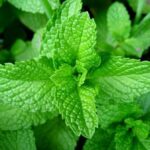Nutritional Value of Eels
The ideal time to indulge in eels is during warmer weather, just after summer when they become plump and enter their reproductive phase. At this point, eels are at their most flavorful and nutritional peak. An ancient saying goes, “Eels in late spring are more precious than ginseng.” According to traditional medicine, eels possess a warming nature and a sweet taste. They are believed to strengthen the body’s core energy, benefit the liver and spleen, alleviate joint pain, and enhance bone and muscle strength.
The saying “Eels and snakes in late spring are better than ginseng” also aligns with the principle of “nurturing yang in spring and summer” in traditional medicine. It suggests that consuming eels during the warmer months can boost overall health and help prevent and treat winter ailments such as chronic bronchitis, asthma, and rheumatoid arthritis.

Golden eels are particularly nutritious, boasting high levels of DHA and lecithin. A unique substance in eels helps lower and regulate blood sugar, making them an effective adjunct treatment for diabetes. Eels are also an excellent source of protein, providing 18.8 grams of protein per 100 grams of meat, while containing just 0.9 grams of fat. This makes them a perfect choice for middle-aged and elderly individuals, as well as those recovering from illness and in need of nutritional replenishment.
Additionally, eels are rich in vitamin A, which improves eyesight and promotes healthy metabolism in epithelial tissues, benefiting eye health.
Benefits and Precautions of Consuming Golden Eels
Golden eels are not only delicious but also possess medicinal value in all their parts, including meat, blood, head, and skin. According to the “Bencao Gangmu,” a renowned Chinese herbal encyclopedia, eels are believed to tonify blood and qi, reduce inflammation, act as an antiseptic, and alleviate joint pain. The sweet and warming nature of eel meat helps strengthen the body’s core and nourish the blood, addressing deficiencies characterized by coldness.
Locals also use eels to treat dry coughs, itching caused by damp heat, intestinal hemorrhoids, and deafness. Drinking the ash of burnt eel heads mixed with warm alcohol on an empty stomach is said to relieve chest pain in women. Eel bones are effective in treating boils, and their blood, when dropped into the ears, treats chronic otitis media with pus formation. When applied topically, it helps with facial paralysis and facial nerve damage. Although eel blood contains toxins, these are destroyed during cooking, making it safe for consumption. Further research is being conducted on the traditional use of eel blood.

Eels are especially nourishing during the summer, when they are firm and packed with nutrients, earning them the reputation of being “better than ginseng.” In traditional medicine, consuming eels in summer is believed to boost yang energy and help prevent chronic inflammatory diseases typical of winter, such as bronchitis, asthma, and rheumatoid arthritis.
However, eels have a drying nature and are not suitable for individuals with internal heat or yin deficiency, as they may cause dry mouth and mouth ulcers. Those suffering from acute inflammatory conditions (such as hypertension, heart disease, tuberculosis, acute bronchitis, acute rhinitis, etc.) should also refrain from eating eels. People experiencing skin itching or chronic illnesses like asthma, cancer, or lupus erythematosus should exercise caution when consuming eels.
Importantly, avoid eating dead eels, as they produce harmful histamine upon death, leading to food poisoning symptoms like dizziness, headaches, chest tightness, and hypotension. The longer a dead eel is left, the more toxins it accumulates.
Wild golden eels are particularly recommended for individuals with physical weakness, poor blood circulation, rectal or uterine prolapse, menstrual tension, joint pain, diabetes, high blood lipids, cardiovascular disease, and atherosclerosis.
However, it is essential to source eels carefully, as some farmed eels are treated with hormones to enhance their growth. Hormones like estrogen and diethylstilbestrol can have adverse effects on human health, including early puberty, feminization of males, and increased risks of breast and ovarian cancers. Therefore, opt for eels from clean and safe farming practices.





































